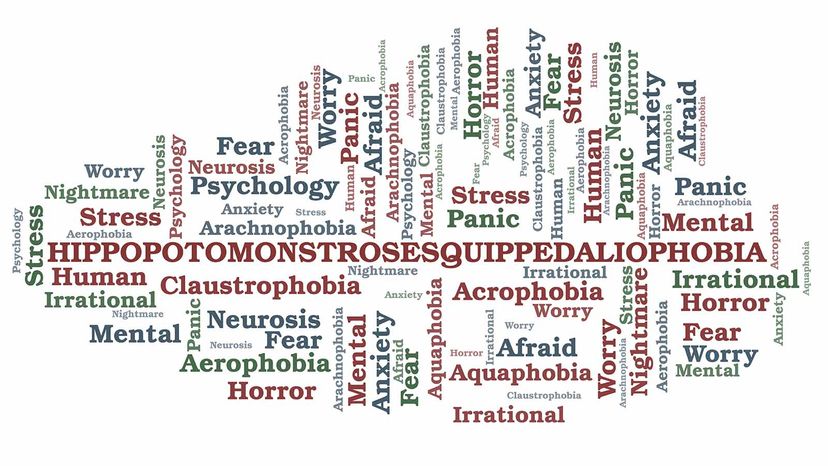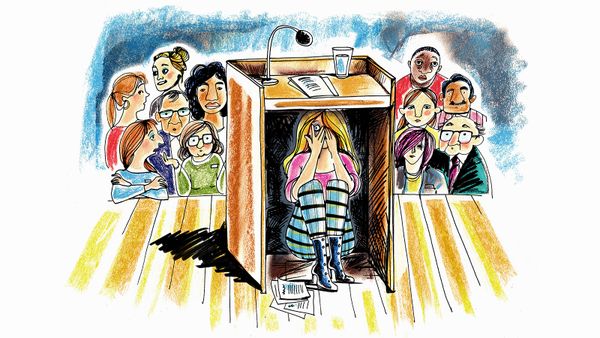If spiders and blood don't make your palms sweat, what about words like pneumonoultramicroscopicsilicovolcanoconiosis or supercalifragilisticexpialidocious? If those twist more than your tongue in knots, then it could be because of hippopotomonstrosesquippedaliophobia. And evenMary Poppinscan't make that go down with a spoonful of sugar.
So, is hippopotomonstrosesquippedaliophobia the fear of hippos? Hip-hop music? No, it's actually the fear of long words, ironic because it's also one of thelongest words in the English language. It's also calledsesquipedalophobia, which is from the Latin rootsesquipedalian, meaning "long word," though why it's not just called that is beyond me. It seems over generations some linguists with a streak of sarcasm (or meanness) decided to make it even longer for those who are already fearful of long words.
As rare as it is, fear of long wordsis very realfor some people. Someone whose job relies on language, such as an English teacher or, say, a freelance writer, might have serious difficulties making it through a writ with such words embedded in it.
While many phobias manifest in external symptoms like shaking, freezing in place or sweating, the symptoms of the fear of long words may be more subtle. They're likely similar to glossophobia, or a fear of public speaking, which are thinking unclearly, nervousness or not being able to speak.
Like any fear, though, those who have it can experience anxiety, which could lead to social phobias, isolation and depression, especially if they're faced with dealing with long words in public situations like a classroom or speaking engagement.
Most likely, someone with fear of long words would need to avoid careers or activities where they're most likely to appear (medical, science, writing), and therefore limit career opportunities or related social situations.






